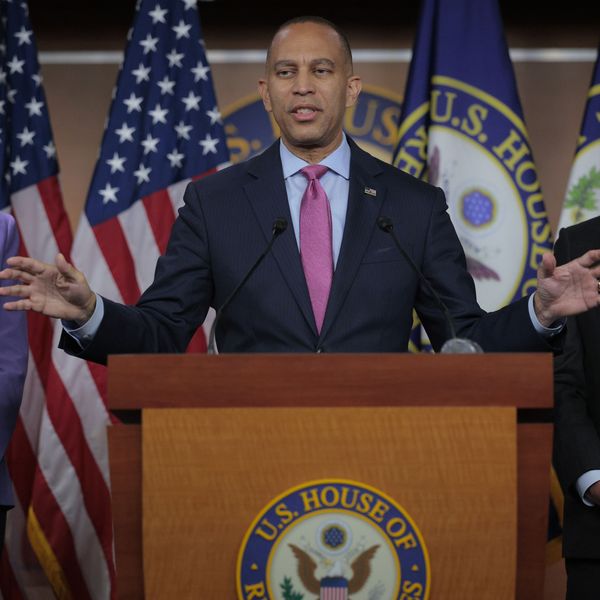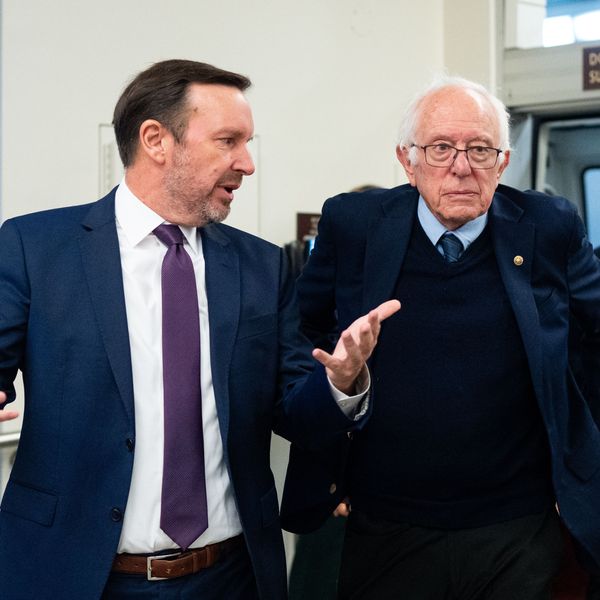GENEVA - The United Nations was able, at least for a few hours, to draw public attention away from the bombings and attacks that have become routine in Iraq and direct it towards another, equally painful, aspect of the conflict -- the humanitarian crisis suffered by nearly four million refugees and internally displaced persons.The U.N. effort to highlight the drastic conditions faced by Iraqi refugees was only relatively successful, however, as Wednesday, the second day of its two-day conference on their humanitarian needs, was one of the bloodiest days in Iraq since the March 2003 U.S.-led invasion.
Media reports indicated that an estimated 170 people were killed by four bombs Wednesday in Iraq, where an average of 100 civilians were killed daily in 2006, according to figures from the International Committee of the Red Cross (ICRC).
United Nations High Commissioner for Refugees Antonio Guterres said the international community has now taken note of the gravity of the crisis and has committed itself to protecting and assisting Iraqis displaced by the violence and to sharing the burden of that effort.
The Apr. 17-18 conference in Geneva drew 450 delegates from more than 60 nations, including members of civil society organisations.
However, there are no plans to move some two million Iraqi refugees, most of whom are in countries bordering Iraq. For example, more than one million have fled across the border to Syria and around 750,000 to Jordan.
Industrialised nations ruled out the possibility of taking in groups of Iraqi asylum seekers, and merely expressed a willingness to provide financial support for Syria and Jordan.
But Bill Frelick, refugee policy director at the New York-based Human Rights Watch, called for special assistance from the United States and Britain, the two main allies in the military coalition that invaded Iraq four years ago.
On one hand they should "provide money to help build schools and health infrastructure to allow people to live in dignity in Syria and Jordan in particular, but in other countries as well in the region, like Lebanon and Egypt," Frelick told IPS.
He also said there should be a "human sharing of responsibility, and that involves resettlement for refugees."
So far, the United States has indicated that it is willing to resettle 7,000 refugees, but "in fact the number that they actually are going to take this year will probably be less than half of that amount," said the activist, who added that "the UK has made no commitment of that sort at all."
Sarah Orr, an expert with the non-governmental London Detainee Support Group, objected to the British government's policy of detaining asylum seekers instead of allowing them to live in the community.
She told IPS that this occurs "because there is a lot of pressures and unhappiness in Britain over people immigrating into the country."
"So you can image people coming to Britain, really traumatised by whatever they went through at home," and basically ending up as prisoners, Orr added.
"A high proportion of the people that are being detained in the UK's 10 detention centres are Iraqis -- about 30 percent, I think. Some people are detained there for three months, some people for six months," she said.
No decision had been reached by the end of the conference on the status of the groups of refugees who were in Iraq prior to the invasion, especially that of some 15,000 Palestinians, whom Guterres described as being in a "dramatic situation."
Civil society sources said that the United States is trying to interest Latin American governments in granting asylum to groups of Palestinian refugees from Iraq.
The U.S. delegation at the conference admitted that its government has already made contact with the Brazilian authorities towards that end.
Conference participants acknowledged that Iraq's main problem is violence, and that the solution required "is political, not humanitarian," as Guterres said.
ICRC director general Angelo Gnaedinger admitted that humanitarian action "does not address the root causes of the current dramatic situation in Iraq."
However, Guterres emphasised the Iraqi government's willingness to support its citizens in exile by setting up offices in the capitals of Syria and Jordan.
Iraqi Foreign Minister Hoshyar Zebari recognised that "more and more people are fleeing daily, especially academics, doctors, scientists, engineers, civil servants and businessmen."
In spite of the circumstances, Guterres said that "local integration of such large numbers of Iraqis (two million refugees) in countries of asylum is not an option, and resettlement must give priority to the most vulnerable."
During the conference, participants stressed that the preferred solution for the overwhelming majority of refugees is voluntary return to their own country. But, realistically, conditions for this are not yet in place, Guterres said.
Before the Geneva conference, there was a global conspiracy to keep silent about the humanitarian dimensions of the crisis in Iraq, said the U.N. High Commissioner. Only the attacks and suicide bombings were seen, but not the refugees, he said.
But profound concern for the internal situation in Iraq was expressed during the sessions, and the Iraqi government and all the parties involved were called upon to seek a solution based on national reconciliation, he added.
The UNHCR will designate a representative in Baghdad, a post which has remained vacant since August 2003, when a blast destroyed its office building there and killed 22 employees, including the chief of mission, Sergio Vieira de Mello of Brazil.
Copyright (c) 2007 IPS-Inter Press Service.


